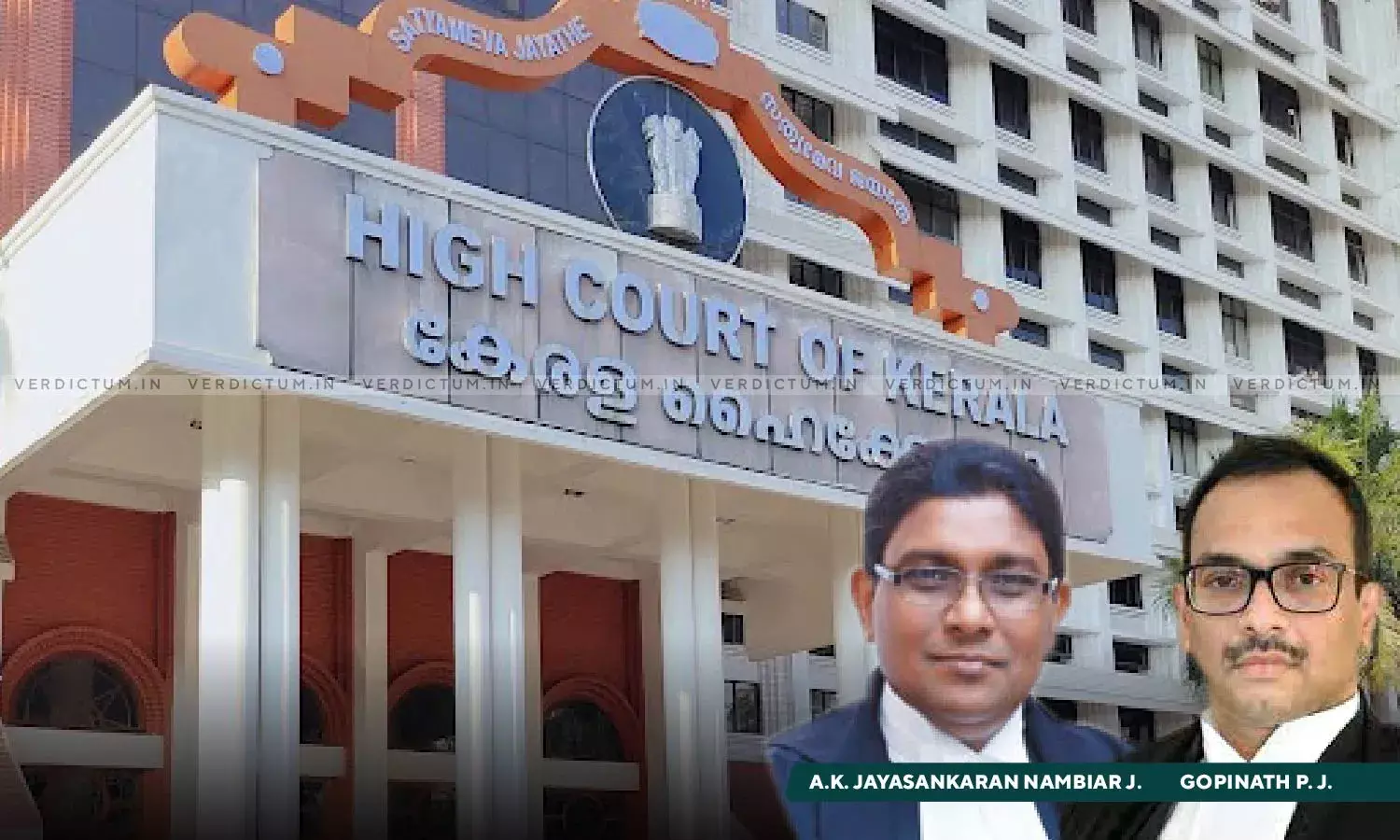Capturing Of Animal Must Be Resorted To Only If Situation Escalates And Endangers Life Of Citizens: Kerala HC
As the guarantee of animal welfare under our constitution is by the State, which through its affirmative action has to discharge the collective duty of its citizens towards animals, the Kerala High Court has held that the approach of the state to human-animal conflict resolution must primarily be one aimed at prevention of such conflict situations, which the state can do by first identifying the underlying causes for such conflict situations and putting in place the necessary infrastructure required for removing them.
The Division Bench of Justice A.K. Jayasankaran Nambiar and Justice Gopinath P. observed that “capturing or killing of an animal must be resorted to only if all other measures fail to yield results, and the situation escalates to one that endangers the right to life of the citizens”.
The observation came in reference to a petition filed by the MLA from the Nenmara Legislative Assembly Constituency, to review an earlier order passed by the Court that directed the translocation of the wild elephant - “Arikkomban”.
This earlier order dated Apr 05, 2023, was issued in the wake of apprehensions voiced by the residents of the Panchayaths bordering the Anayirangal region, who were apprehensive of the foraging activities of the elephant in their settlements, and the decision to tranquilize, radio-collar and translocate the elephant to the Parambikulam Tiger Reserve was taken based on the opinion of experts in the field.
Advocate Surin George Pie appeared for Petitioner and Advocate Ashok M. Cherian & Nagaraj Narayanan appeared for Respondents.
In the petition, the assumption of the petitioner is that the elephant is habituated to foraying in human settlements and his apprehension is that it will now take to foraging in the human settlements within the Muthalamada Grama Panchayath.
The Court observed that the apprehension of the petitioner was baseless as there is no material produced by him that would suggest that such anticipated behavior of the elephant is a certainty.
While it would be morally wrong to kill, or confine to a life in captivity, an aggressive animal if it’s aggression was triggered by unjustified and offensive human action, such action would also be legally wrong in a duty based legal regime that obliges humans to respect the interests of animals, added the Court.
The Bench also said that it is not a mere coincidence that Article 51A of our constitution uses the expression ‘compassion’ and ‘humanism’ while enumerating the duties expected of the citizenry towards the environment and living creatures.
“While deciding matters relating to the environment or ecology, our courts do keep in mind the provisions of Part IV and IV-A of the Constitution and issue directions based thereon, recognizing that the judicial wing is also an integral part of the ‘State’ that is charged with the protection and improvement of the environment and to safeguard the forests and wildlife of the country”, observed the High Court.
The Bench held that as the decision to translocate the animal was taken by this court after considering the opinion of experts in the field, the decision must be seen as one taken towards fulfilment of the State’s obligation to look after the welfare of the animal.
In the absence of any expert opinion that would suggest any other suitable place for the translocation of the elephant in question, there is no reason to review earlier order directing the translocation of the elephant “Arikkomban” to the Parambikulam Tiger Reserve, added the Bench.
The High Court, therefore, sustained its earlier order directing the translocation of the elephant ‘Arikkomban’ to Parambikulam solely because there is no material, either by the petitioners or by the State government, which suggests the possibility of identification of an alternate and more feasible site for the translocation.
Cause Title: K. Babu v. Union of India and Ors.




